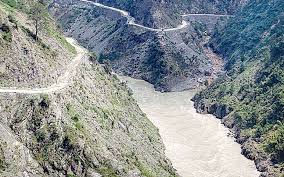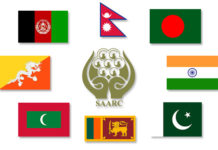By Muhammad Luqman
Pakistan and India have failed to reach any agreement on two controversial hydro-power projects in Indian-Occupied Jammu and Kashmir as the two day talks between the two countries on sharing of waters of trans-boundary rivers concluded in the eastern city of Lahore on Thursday.
The Pakistani members led by Commissioner Syed Meher Ali Shah expressed reservation on the two under-construction controversial water reservoirs and hydro power projects.
Pakistan has serious reservations over construction of 1000-MW Pakal Dul and 48-MW Lower Kalnai hydroelectric projects on two different tributaries of River Chenab by India.
The Pakistani side also demanded to reduce the height of Pakal Dul by five feet. However, the Indian delegation said construction of the dams does not violate the Indus Water Treaty.
The last meeting of the Pakistan-India Permanent Indus Commission was held in Indian capital, New Delhi in March during which both the sides had shared details of the water flow and the quantum of water being used under the 1960 Indus Waters Treaty.
In a letter to Pakistani Prime Minister Imran Khan, Prime Minister Narendra Modi had expressed India’s resolve to build good neighbourly relations between the two countries.
The water commissioners of both the countries are required to meet twice a year and arrange technical visits to projects’ sites and critical river head works.
The 1960 Indus Waters Treaty, brokered by the World Bank and signed by then prime minister Jawaharlal Nehru and Pakistan’s president Ayub Khan, administers how the water of the Indus river and its tributaries that flow in both the countries will be utilised. Under the provisions of the Indus Waters Treaty 1960, waters of the eastern rivers — Sutlej, Beas and Ravi — had been allocated to India and the western rivers — the Indus, Jhelum and Chenab — to Pakistan.
Islamabad had been raising objections over the design of the Kishanganga hydroelectric project, saying it is not in line with the criteria laid down under the Indus Waters Treaty between the two countries.
The Kishanganga project was started in 2007 but on May 17, 2010, Pakistan moved for international arbitration against India under the provisions of the Indus Waters Treaty.















